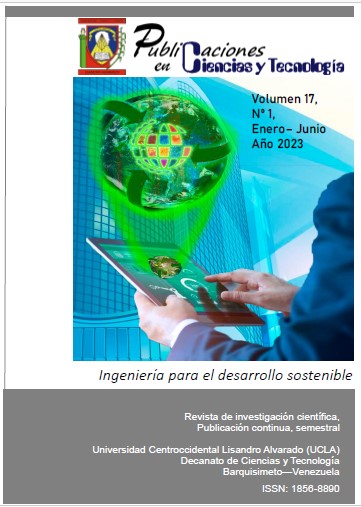Ocean pollution by plastics: quantification and removal techniques
Keywords:
editorial, Artificial Intelligence, SSustainable DevelopmentAbstract
Artificial intelligence (AI) has rapidly become a transformative force in every aspect of our lives. From the way we work and communicate to the way we make decisions and solve problems, AI is changing the world around us. However, one of the controversies surrounding its application is its impact on the planet's sustainable development. In this editorial, we briefly discuss what can be done to balance its application with environmental protection and social well-being.
Downloads
References
Madroñero-Palacios, Sandra, & Guzmán-Hernández, Tomás. (2018). Desarrollo sostenible. Aplicabilidad y sus tendencias. Revista Tecnología en Marcha, 31(3), 122-130. https://dx.doi.org/10.18845/tm.v31i3.3907.
Araiz Huarte, D. E. (2023). La Inteligencia Artificial como agente contaminante: Concepto Jurídico, Impacto Ambiental y futura regulación. Revista Actualidad Jurídica Ambiental, N° 130, Sección “Artículos doctrinales”. https://doi.org/10.56398/ajacieda.00071
Vitola-Quintero, M., Ballestas-Campo, N., Pérez-Cerro, J., & Forbes-Santiago, R. (2024). Implicaciones Éticas, Sociales y Ambientales de la Inteligencia Artificial para el Desarrollo Sostenible: Una Revisión de la Literatura. Revista Científica Anfibios, 7(1), 72-81. https://doi.org/10.37979/afb.2024v7n1.148.
Sánchez Yáñez, J. M., & Márquez Benavides, L. (2024). Gestión de residuos sólidos y la inteligencia artificial en el contexto mexicano. Ciencia Nicolaita, (90). https://doi.org/10.35830/cn.vi90.722.
Published
How to Cite
Issue
Section

This work is licensed under a Creative Commons Attribution-NonCommercial-ShareAlike 4.0 International License.
The opinions expressed by the authors do not necessarily reflect the position of the publisher of the publication or of UCLA. The total or partial reproduction of the texts published here is authorized, as long as the complete source and the electronic address of this journal are cited.
The authors fully retain the rights to their works, giving the journal the right to be the first publication where the article is presented. The authors have the right to use their articles for any purpose as long as it is done for non-profit. Authors are recommended to disseminate their articles in the final version, after publication in this journal, in the electronic media of the institutions to which they are affiliated or personal digital media.



